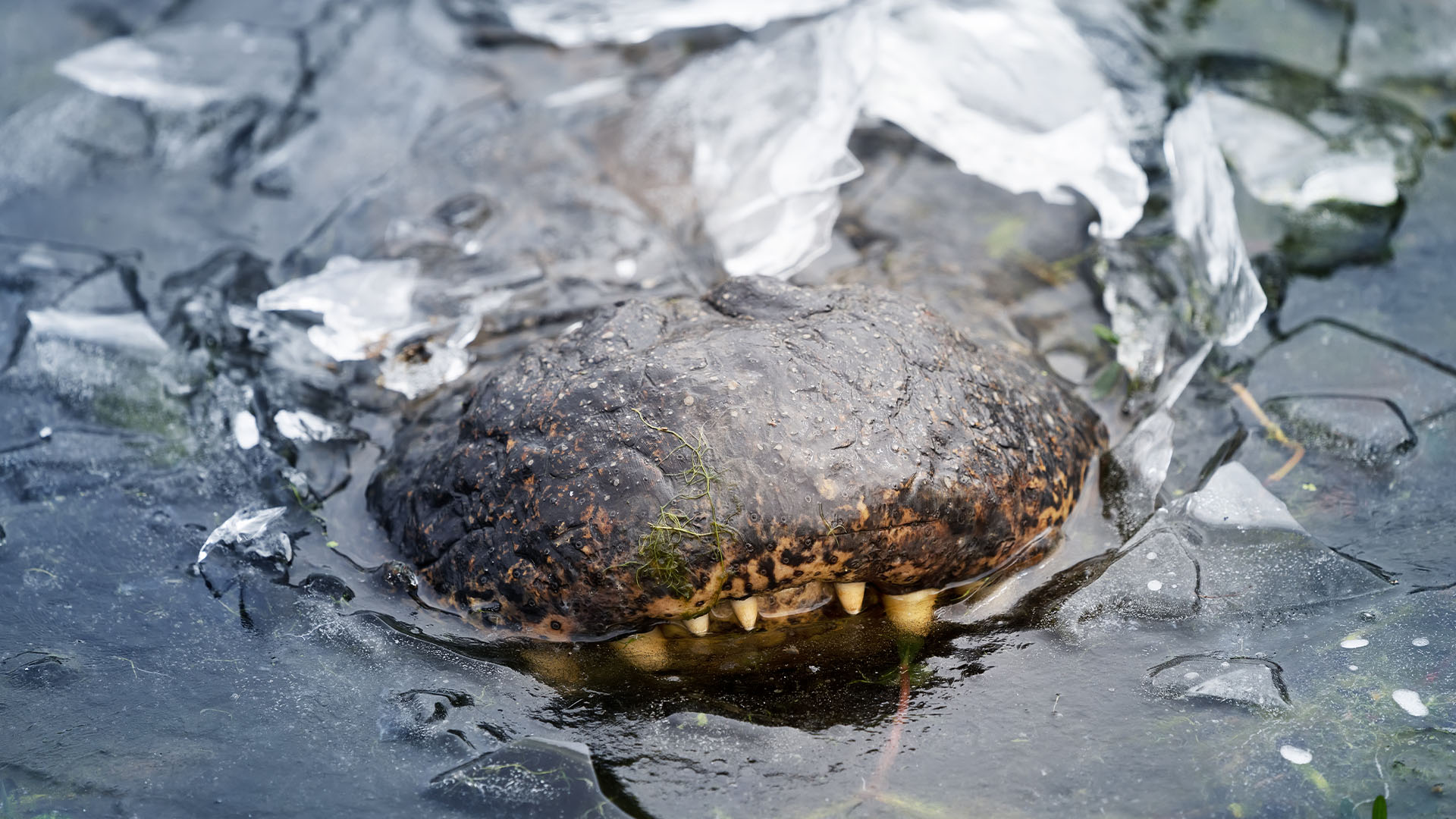Alligators survive cold snap by becoming 'frozen solid' in North Carolina and Texas ponds
When temperatures drop below freezing, alligators can enter a state of torpor known as brumation, as the water around them solidifies and suspends them in a giant, pond-shaped ice cube.

Alligators in North Carolina and Texas are surviving a cold snap by suspending their bodies in pond water and letting it freeze solid around them, videos show. Only their snouts and front teeth poke through the ice, allowing the alligators to breathe while they wait for the water to thaw.
"People keep asking how the swamp puppies are doing — I'm happy to report that they are frozen solid," a representative of the Swamp Park in southern North Carolina, said in a video on Facebook. "We literally have 'gatorcicles' right now."
Several alligators were found frozen inside giant ice cubes at the Swamp Park, a tourist attraction and alligator sanctuary near Ocean Isle Beach, North Carolina. Another alligator was spotted suspended in an icy pond at the Gator Country rescue center in Beaumont, Texas.
Both states have experienced dips in temperature below 30 degrees Fahrenheit (minus 1 degrees Celsius) in the past week, with a cold snap of 17 degrees Fahrenheit (minus 8 degrees Celsius) recorded in North Carolina.
A TikTok video taken at Gator Country this weekend shows an alligator lying motionless in a murky pond with its snout sticking out from below the icy surface. "He has pushed his snout up through the yuck to breathe," Gary Saurage, the owner of the rescue center, said in the video.
Alligators survive frigid temperatures by entering a state of torpor called brumation — the cold-blooded, reptilian equivalent to hibernation in mammals.
Related: Pinky-white leucistic alligator with blue eyes born in Florida is 1 of only 8 in the world
Sign up for the Live Science daily newsletter now
Get the world’s most fascinating discoveries delivered straight to your inbox.
When it gets so cold that water freezes, alligators "instinctively tilt their nose up" so it sticks out of the water to stop them suffocating, the Swamp Park representative said in the video.
@gatorcountrytx ♬ God's Country - State of Mine & Drew Jacobs
When ice crystals start to form, alligators' metabolism slows down and their lethargic bodies gradually become suspended in the frozen water with their eyes closed. Unlike mammals that hibernate, alligators and other reptiles don't fall into a deep sleep during brumation and still have periods of activity, so they can drink.
During brumation, an alligator's heart can slow down to as few as three beats per minute, Saurage said in the Tiktok video. "Folks, that's amazing," he added. "That's how alligators survive in the ice."

Sascha is a U.K.-based staff writer at Live Science. She holds a bachelor’s degree in biology from the University of Southampton in England and a master’s degree in science communication from Imperial College London. Her work has appeared in The Guardian and the health website Zoe. Besides writing, she enjoys playing tennis, bread-making and browsing second-hand shops for hidden gems.









